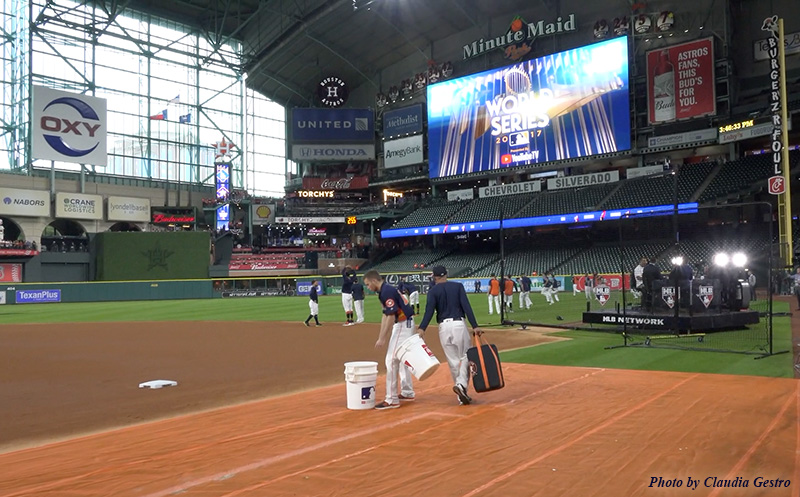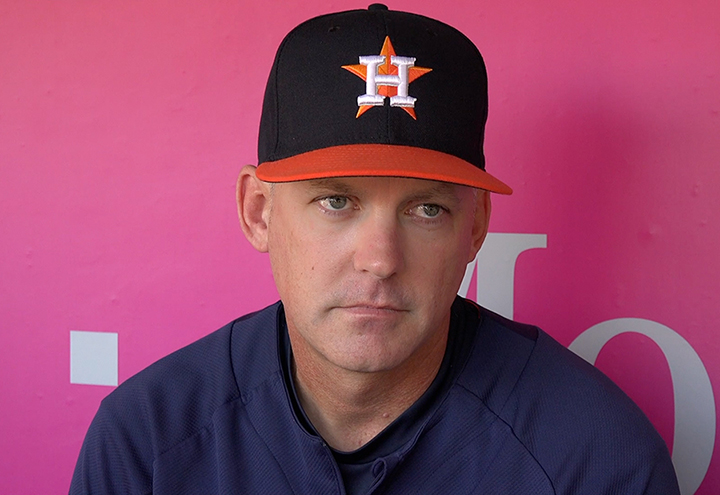Pete Rose and His Legacy
Because I am self-quarantining due to someone close to me having COVID-19, I have been binging on a variety of movies and TV programs. For example — and this sounds crazy — I binged through all three of the Lord of the Rings movies; The Fellowship of the Ring, The Two Towers and The Return of the King. All three being extended versions, meaning that is more than 10 hours of viewing. Thankfully I was able to take naps in all three, so that time wasn’t completely wasted. After 20-plus years they are still entertaining films.
Another selection I watched was the HBO mini-series, Charlie Hustle & the Matter of Pete Rose. Before I get into my thoughts on Pete Rose and this mini-series, We need to look at the on-field accomplishments of the man who was given the derisive title of “Charlie Hustle” and turned that nickname into a title of honor that he wore with pride throughout his career.
His Major League Baseball records:
- The big one and considered unbreakable: 4,256 career hits,
- 3,215 career singles,
- 3,562 career games played,
- 14, 053 career at-bats,
- 15,890 career plate appearances,
- Lifetime batting average .303.
Plus, he has been a World Series MVP — 1975 with the Cincinnati Reds, the National League Rookie of the Year in 1963, with the Reds, three-time World Series champ — 1975 and 1976 with the Reds and then in 1980 with the Philadelphia Phillies, he was a 17-time MLB All Star, three-time National League batting champ — the list goes on.
The switch hitting Pete Rose is, without question, one of the top five best baseball players of all time. And let me be even more specific — he is probably in the top three and possibly the best player of all time — step aside Ty Cobb. That last statement is very much debatable because that is the nature of the game. Fans, sports writers/reporters love to debate these matters endlessly, especially around the time of the yearly inductions into baseball’s Hall of Fame in Cooperstown, New York.
This year, 2024, four men joined the Hall: Adrian Beltré, Todd Helton, Jim Leyland and Joe Mauer. They all have pages on Wikipedia if you wish to look them up.

third baseman Adrián Beltré (Claudia Gestro)
This is about Pete Rose, aka Charlie Hustle, one of the main cogs of the Big Red Machine, a player of such great ability he should have been inducted into the Hall on his first ballot in 1991 — but he wasn’t. The reason being he was banned for life from baseball in 1989 by then commissioner Bart Giamatti who died of a heart attack eight days after officially banning Rose. Some people thought the heart attack was due to the Pete Rose issue, but really, a chain-smoker like Giamatti who was morbidly obese, or, as it is known now Class III obesity, Giamatti’s death was due to his unhealthy lifestyle — period.
Pete Rose had a long time gambling habit, he probably still does. In this mini-series Rose claims he quit gambling because it stopped being fun. But how can we believe him? He lied about his gambling on baseball and the Cincinnati Reds for 14 years. He only revealed the minimum of what he thought he needed to please former MLB commissioner Bud Selig. Rose said he thought he only had to reveal the truth to Selig, but was told his confessions had to be public, hence the book My Prison Without Bars.
According to Rose, he bet on the Reds to win every night because, and this sounds logical, everyone should bet on their own team to win. But Rose didn’t bet on the Reds every night. Record show he bet on the Reds 52 times. Let’s just say Rose is telling the truth when he claims to have only bet on Cincinnati to win. That’s a stretch, considering he is a consummate liar, but let’s believe him — he only bet on the Reds to win. That’s 52 bets on his team, the one he was managing. What about those hundreds of other games he managed in the years he gambled on baseball? What message was he sending to the bookies he owed so much to in those years when he didn’t bet on his team? “Hey Mr. Bookie man! I’m not betting on the Reds tonight. Take what you will from that!” He owed a New York bookie $400k at one time. What was that worth, in terms of baseball “favors”?
He has never told us the full story of his gambling on baseball. The Dowd Report has all the evidence: the betting slips, Rose’s finger prints on those betting slips, testimony from the acquaintances that took the bets, guys who were convicted of being drug dealers and tax cheats. Pete was convicted of filing false tax returns and spent time in a federal prison.
Yet, for nearly 15 years he lied about not betting on baseball. Now he wants us to believe he is being treated unfairly.
Let’s look at fairness. In February of 1991, right after Rose got out of prison, the Baseball Hall of Fame changed its rules banning anyone on the league’s ineligible list from election into the Hall. There was only one reason they did it — to keep Rose out. They didn’t do that for the Chicago Eight, the Black Sox, who took money to throw the 1919 World Series. As a result, “Shoeless” Joe Jackson will never be in the Hall of Fame.
Pete Rose hates being compared to Shoeless Joe because, darn it! Taking money to throw the World Series is far worse than betting on baseball … But did Rose get a reduction in his gambling debts, or some type of favor from his bookies if he delivered a game a certain way? In this mini-series he said if the price had been right he would have thrown a game. So, did he, or didn’t he? He said he didn’t, but should we take him at his word? That’s a big question.
In what many consider to be the biggest scandal in baseball history, not a single player was punished. The 2017 Houston Astros used electronic means to steal signs from the opposing catchers, including in the 2017 World Series against the Los Angeles Dodgers. My opinion is that the sign stealing didn’t matter in game seven because the game was in Dodger Stadium and the Astros didn’t have access to the centerfield camera. Houston won that game fair and square, but would there have been a game seven if the Astros weren’t cheating in the series?

the Los Angeles Dodgers and Houston Astros (Claudia Gestro)
The team was fined $5 million and lost their first and second round draft picks for two seasons. Plus three of the managers, suffered consequences. General manager Jeff Luhnow and field manager A.J. Hinch were both suspended for a season. MLB found that Red Sox manager Alex Cora, who had been the Astros’ bench coach in 2017, helped mastermind the scheme, was banned from the 2020 postseason.

Tigers manager A.J. Hinch (Claudia Gestro)
Then there is the “PED” scandal of the 1990s. Steroids and performance enhancing drugs exploded on the baseball world in the late 1990s when Mark McGwire, Ken Griffey, Jr and Sammy Sosa were chasing Roger Maris’s single season home run record of 61. McGwire broke the record in 1998, ending the season with 70 home runs.
As it turned out Sosa and McGwire were two of many players in that era to have used PEDs. Some of them, like McGwire testified before Congress, although McGwire insisted on not talking about his own use of the drugs, Jose Canseco wrote two books about his use of PEDs and that of his fellow players.
How many players from that era, including Barry Bonds, Jr, were punished for their use of banned drugs? Go ahead and Google it. No one was punished for PED use before 2005. Barry Bonds, Jr. was convicted of perjury related to his dealings with the PED distributor Bay Area Laboratory Co-operative (BALCO) but that conviction was eventually overturned.
Bonds is the only player from that era to ever face consequences and he even got those turned around. So, what happened to the players that used PEDs in the 1990s? I know Sammy Sosa, Mark McGwire and Barry Bonds went back to work with major league teams as coaches. Bonds currently holds the single season home run record with 73 and the lifetime home runs record with 762. No one has the courtesy and integrity to put asterisks next to those record because Bonds attained those milestone while using PEDs.
Now MLB punishes players who use PEDs. One pf my favorite players from this century, Ryan Braun of the Milwaukee Brewers, was busted. He got the punishment he deserved.
The point is, many players from the 1990s got off clean for using banned substances — and that is unfair. If Pete Rose rates permanent ineligibility for gambling on baseball, why not the most egregious violators of the PEDs rules? Bud Selig, who was commissioner at the time, whiffed on it. He’s okay — as he should be — with Rose’s punishment, but he chose not to punish the PED users.
When Bart Giamatti banned the all-time hit leader he wasn’t concerned about coming down on a star player. He had the Dowd Report and the FBI investigations and that was it. Giamatti set the standard, laid out the road map that Selig could have used to punish the star players who were using banned drugs, but he didn’t.
Should the lifetime ban be lifted for Rose? My first thought is no. Just because recent baseball commissioners don’t have the same integrity as Bart Giamatti doesn’t mean give Rose a break, just admit the league applies the rules unfairly.
After watching that series, which featured Rose in his own words quite a bit, These are my impressions. Rose is only sorry he bet on baseball because he has this enormous consequence on his shoulders. He isn’t sorry he hurt the game — he doesn’t think he hurt anyone but himself and his family. It looks like Pete Rose thinks Major League Baseball and the Baseball Hall of Fame owe him his eligibility. The arrogant prick.
Current MLB commissioner Rob Manfred has been working with Rose’s attorney to lift that lifetime ineligibility off Rose. Will it happen? It might, but if the issue is fairness then the lifetime bans should be lifted off every other player with the ban. But fairness isn’t the issue. It’s public opinion. Pete Rose’s lifetime ban will probably get lifted before he expires. So be it. Let’s be honest. The major professional — and collegiate — sports leagues are deep in bed with gambling companies with advertising, the naming of facilities, including two NFL football stadiums and much more. During every game on TV we will see advertising for online gambling companies. The sports leagues have fully embraced gambling, including MLB because of public sentiment. Millions of fans want legal gambling on sports throughout the country, not just in Nevada. Online gambling is still banned here in California, but many states have made it legal and Major League Baseball is getting its sizable taste of the $127 billion industry.
What’s fair anymore? As much as I hate to admit it, if Major League Baseball is going to promote gambling on baseball, the fair thing to do is lift all the lifetime bans related to gambling and admit the league is more interested in the money than integrity.
It’s time to let the Hall of Fame selection committees (sportswriters and players) decide Pete’s fate. The day Pete Rose stands at the podium to accept his induction into the Baseball Hall of Fame will be a huge money-making week for the hall and the league. And truly, it’s no skin off my teeth if Rose becomes eligible once again. The glow of wholesomeness around sports has long since been pushed out of existence for me. I’m not even following baseball this season.
What is it all about? Money and we the fans are footing the bill. Yay baseball.

Tim Forkes started as a writer on a small alternative college newspaper in Milwaukee called the Crazy Shepherd. Writing about entertainment issues, he had the opportunity to speak with many people in show business, from the very famous to the people struggling to find an audience. In 1992 Tim moved to San Diego, CA and pursued other interests, but remained a freelance writer. Upon arrival in Southern California he was struck by how the business of government and business was so intertwined, far more so than he had witnessed in Wisconsin. His interest in entertainment began to wane and the business of politics took its place. He had always been interested in politics, his mother had been a Democratic Party official in Milwaukee, WI, so he sat down to dinner with many of Wisconsin’s greatest political names of the 20th Century: William Proxmire and Clem Zablocki chief among them. As a Marine Corps veteran, Tim has a great interest in veteran affairs, primarily as they relate to the men and women serving and their families. As far as Tim is concerned, the military-industrial complex has enough support. How the men and women who serve are treated is reprehensible, while in the military and especially once they become veterans. Tim would like to help change that reality.

Pete Rose’s record of 4,256 hits highlights his baseball greatness, but his lifetime ban for gambling complicates his legacy. While some argue for his Hall of Fame induction, others believe his actions tainted the sport’s integrity. His story remains a powerful debate on how talent and ethics intersect in sports. What’s your take—should his achievements outweigh his controversies?